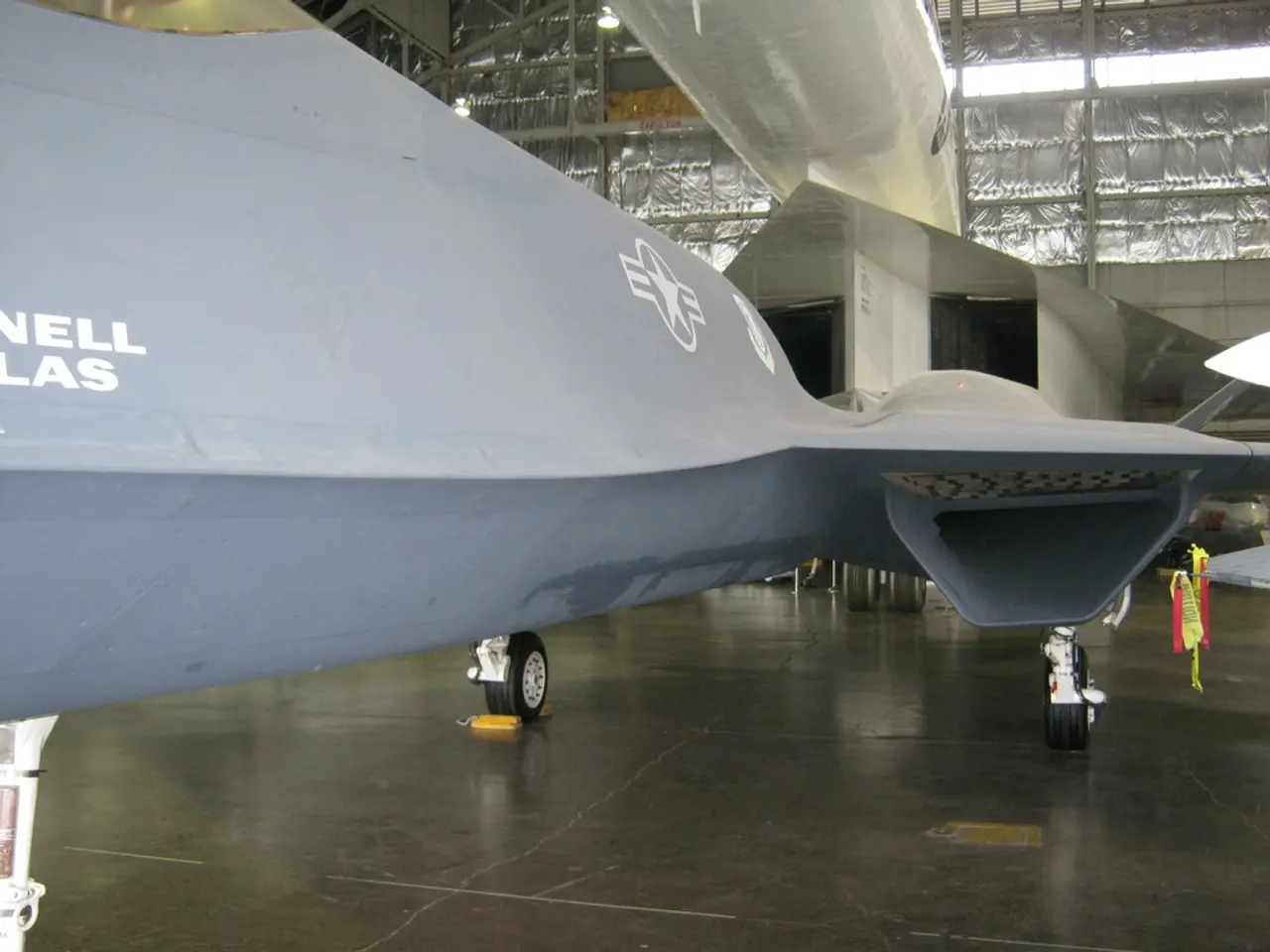Funding of $94.6 million secured by Dronamics for managing cargo operations of unmanned aerial vehicles
In the realm of drone technology, UK-Bulgaria-based Dronamics Inc. is making significant strides towards launching the world's first dedicated cargo drone airline, with plans to scale operations across Europe. Their flagship project, the Black Swan cargo drone, is designed for same-day delivery of up to 350 kg of goods, addressing logistics challenges in regions where traditional cargo air carriers face constraints[1].
Key points on their progress and future plans include:
- **Operational Launch and Partnerships**: Dronamics is targeting an operational start in early 2023. A significant development is the Memorandum of Understanding (MoU) signed with Cranfield Aerospace Solutions (CAeS) to integrate hydrogen fuel cell propulsion technology into the Black Swan drone, aiming to enhance endurance and sustainability of the fleet[3].
- **Technological Edge**: The Black Swan drone's larger payload capacity (up to 350 kg) differentiates it from smaller commercial drones dominating the European market. This allows Dronamics to offer reliable same-day cargo delivery on routes unsuitable for battery-only drones due to range and payload limitations[1]. The partnership to incorporate hydrogen fuel cells could provide longer endurance and greener operations, positioning Dronamics as a pioneer in eco-friendly cargo drone aviation[3].
- **Regulatory and Market Positioning**: Dronamics is strategically navigating European drone regulations and insurance frameworks, moving beyond small drone categories to meet commercial logistics needs for timely deliveries. Their model leverages regulatory thresholds to enable expanded operations where traditional small drones are insufficient, pushing the envelope on commercial drone airline operations[1].
- **Scaling Plans across Europe**: While exact route expansions are not detailed, the company’s strategic intent includes scaling operations throughout Europe, particularly in regions where cargo delivery infrastructure is challenged by geography or regulatory complexity. The emphasis on island connections and medium-weight payloads implies a focus on niche but valuable cargo corridors[1].
Jacob Stoner, a respected figure within the drone community and a licensed commercial drone operator in Canada, is another key player in this evolving landscape. Stoner, known for his passion for videography and societal impact of drone technology advancements, is the CEO of Flyeye.io[2].
The funds raised by Dronamics are being used to scale manufacturing, establish operational hubs, and invest in regulatory compliance and safety. The Black Swan integrates a fully autonomous navigation suite, including satellite communications, AI-assisted flight stabilization, and automated ground handling protocols[1].
As this is a nascent and highly regulated field, Dronamics' success in operational scaling will likely depend on continued regulatory approvals, market adoption, and technological validation[1][3]. The future of cargo drone airline operations is on the horizon, and Dronamics Inc. is leading the charge.
[1] Dronamics Inc. (2022). Dronamics Inc. Steps Closer to Launching Europe's First Cargo Drone Airline. Retrieved from https://dronamics.com/ [2] Flyeye.io (2021). About Us. Retrieved from https://www.flyeye.io/about [3] Cranfield Aerospace Solutions (2021). Dronamics and Cranfield Aerospace Solutions to Develop Hydrogen-Powered Cargo Drone. Retrieved from https://www.cranfield.ac.uk/news/dronamics-and-cranfield-aerospace-solutions-to-develop-hydrogen-powered-cargo-drone
- In the realm of finance, Dronamics Inc. is securing funds to scale manufacturing, establish operational hubs, and invest in regulatory compliance and safety, with the aim of launching Europe's first cargo drone airline in early 2023.
- With the strategic intent of scaling operations across Europe, Dronamics' focus on education-and-self-development is evident as they navigate European drone regulations, positioning themselves as pioneers in eco-friendly technology, leveraging advancements such as hydrogen fuel cell propulsion technology and artificial intelligence. This progressive approach could potentially impact the lifestyle and sports industries by revolutionizing the delivery of goods, especially in remote or challenging regions.




